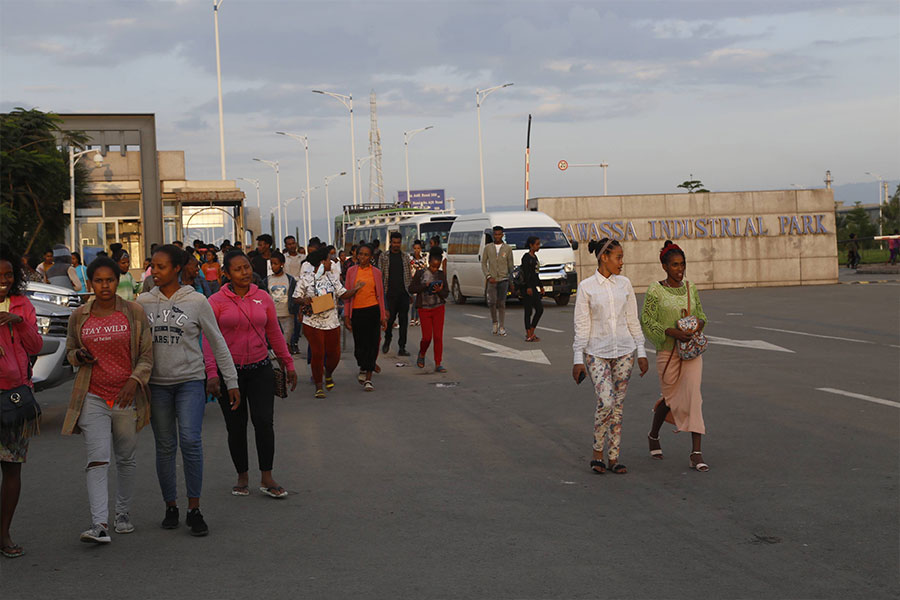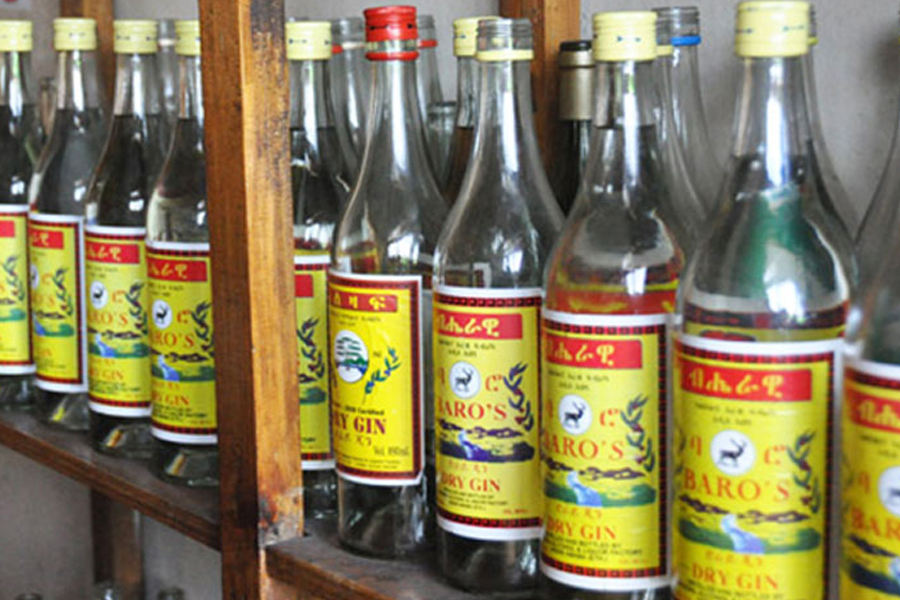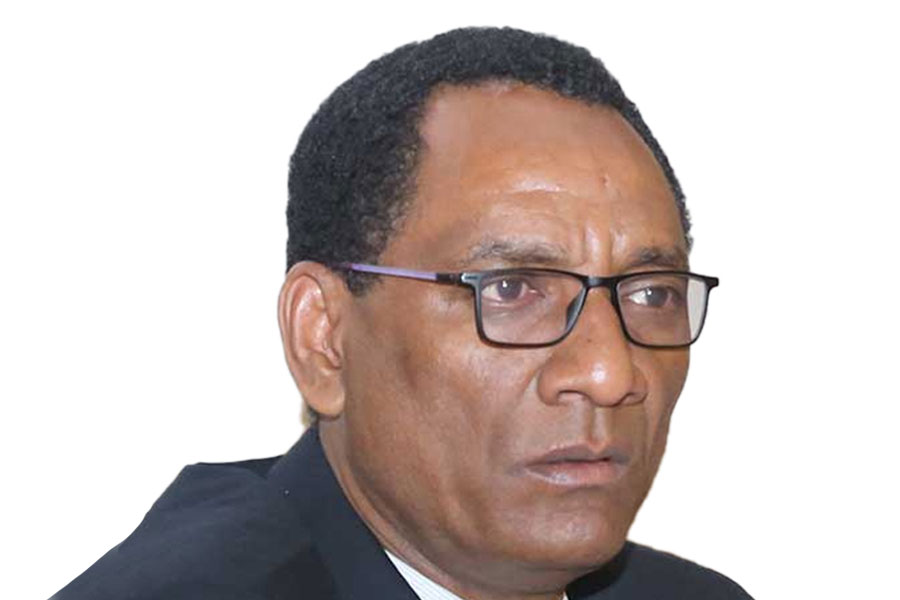
Agenda | Jul 20,2025
The day Rabia Ali found a job was unforgettable for her family. She had to walk for two hours from her homeland, Siyomba, a small town in Amhara Regional State, to apply for the job at Kombolcha Industrial Park. It was three and half years ago, but Rabia remembers it as if it was yesterday. Earning a monthly salary of 1,450 Br working as a machine operator at one of the textile plants inside the park, the 25-year old got married last year.
Rabia was excited. She was hopeful the job would enable her to save some to help her family, who can barely cover their monthly food expenses and perhaps start a small business of her own. But, the years rolled by, and her dreams remain unfulfilled. Saving from her marginal income was proven a tough chase. Inflation in the double-digits has been the scourge of many in the fixed income group whose wage remains stagnant in the face of the rising cost of living.
“The increasing cost of living has eaten all of my money, taking away my dreams along with it,” said Rabia.
Undoubtedly, she speaks for many, her experience mirroring the galloping inflationary pressure on household incomes.
When she first joined the industrial park, less than 900 Br was enough to buy a quarter quintal of teff, sufficient for a month for a family such as hers. It now costs five times as much in the area where she lives. Edible oil is now on retail sale for as much as 100 Br a litre, increasing from 60 Br.
Shiro, chickpea or bean powder used to make stew, is a staple diet in Ethiopia. The popular imagination considering it low-income families` meal; the cost to prepare a dish depends on the quality of ingredients used. It could cost a household little, and Rabia`s family consumes it on almost a daily basis. Shiro is priced 70 Br a kilogram, a 30 Br upsurge in three years. An item always on the top of her grocery list, berbere (an Ethiopian spice blend), showed an even more dramatic increase from less than 100 Br to 250 Br.
Rent, which comprises one-third of her recurrent household expenditure, rose to 600 Br from 450 Br.
The compounded build-up of prices in living cost represents a 44pc increase since she started work at the industrial park. Her salary grew by a mere eight percent. Inflation-adjusted, her real wage now stands at 1,090 Br, 25pc lower than her purchasing power a few years ago.
“So annoying, indeed,” says Rabia, in exasperation.
Employers working at industrial parks have been complaining that they are underpaid, pushing for the adoption of a regulated minimum wage.
Rabia may not have grasped the economics of wage and labour. But she understands enough to describe her life as a “completely tedious” affair. Her story reflects the living conditions of millions of wage-earners, especially those under the fixed and lower-income ladder, across Ethiopia. These are the families most hit, where the official report reveals year-on-year inflation averaged 20pc in the last 12 months.
The state in Ethiopia remains the largest employer, with an estimated 1.5 million people under the civil service payroll. The private sector, largely the financial and the manufacturing sectors, follows where Rabia and many more salaries can barely cover their monthly expenditure, of which 60pc comprises cost to food items.
The problem is severe in Addis Abeba, a city highly dependent on supplies from regional states and imports to get its food and non-food items.
A resident of Addis Abeba who requested to remain anonymous works in the administration department at the headquarters of the Federal Police Commission and earns a monthly income of around 7,000 Br, half of which goes to pay rent. He spends roughly 30pc of his salary on food supplies, while school fees for two of his three children top the regular expenditure. For as long as he has been employed, he struggled to save up to 15pc of his income for the rainy days. "Unfortunate circumstances and sickness" is how he describes the winter seasons of life.
"This is no longer possible with each of my expenses rising at a higher rate than ever," he told Fortune, sipping coffee at a cafe around the Mekanisa area.
The authorities measure movements in prices and cost of living in the economy; through the federal agency for statistics, they release monthly data on headline and core inflation. In headline inflation, they follow prices that are not adjusted to remove highly volatile and seasonal food and energy prices. Known in the economics jargon as top-line inflation, the data covers year-on-year movement in prices.
Headline inflation in Ethiopia has been in the double digits since August 2017.
Precipitated by the devaluation of the Birr against a basket of major currencies (more so the Dollar) in October 2017 and later by further depreciation as deep as 21pc yearly, the economy saw its highest inflation rates in nine years during March last year, reaching 22.6pc. Though this figure dropped to 19.2pc last month, it remains higher than the eight percent target set by macroeconomic policymakers in Prime Minister Abiy Ahmed's (PhD) administration.
The rise in wage across sectors of the economy remains stagnant or grow marginally compared to the galloping of prices.
Kassahun Follo has served as the president of the Confederation of Ethiopian Trade Unions (CETU) for over a decade. He leads a national labour organisation with no minimum wage, although the civil service has a threshold monthly income of 420 Br, almost 10 dollars at the current exchange rate.
"Wage is significantly low even before it was eroded by an increase in the cost of living," Kassahun said. "Income earners, especially those in the lower bracket, are now in a difficult position. The inflationary pressure is leaving an indelible mark on the labour side."
Ayele Gelan is an economist from the Univerity of Strathclyde, UK, and with over 30 years studying the domestic economy. Having a debut as a research economist for the Kuwait Institute for Scientific Research (KISR), he has been a vocal advocate for adopting an income policy, accompanied by and synchronised with supply-side policies for food and other necessities. He would argue that the way out of this "cataclysmic situation" would be revamping the wage structure, raising income from the bottom. This, Ayele believes, "fixes Ethiopia's economic malaise."
However, revamping wage to double salaries across the board would add about 3.5 billion dollars (147 billion Br) to the budget, an amount Ayele argues is "nothing" compared to spending on projects such as the safety net programs.
Doubling the monthly wage of income earners may sound wonderful to people like Rabia. But policymakers are reluctant to travel down this road, often downplaying the importance of wage adjustment in taming the inflationary pressure. They fear that doing so would lead to wage-push inflation, which results from a rise in the cost of goods and services as businesses try to offset the increase in the cost of labour by adjusting prices.
A close look into the inflationary pressure, according to Fikadu Digafe, chief economist and vice governor of the National Bank of Ethiopia (NBE), reveals that the upsurge in cost of living is largely driven by the increase in the price of food items, which is attributed to supply-side problems. He blames a lengthy supply chain and the involvement of intermediaries speculating prices.
"This is a country where you buy an item for a price three or four times higher than its farmgate price," says the Vice Governor. "The involvement of multiple actors in the food supply chain did the job of controlling the inflationary pressure complex."
He sees the use of fiscal and monetary policy measures futile as more than three-fourth of the inflationary pressure is contributed in the food component.
This has been reflected in successive reports from the Central Statistical Agency (CSA), the federal agency that monitors prices. The latest data puts food inflation at 21.7pc, signalling that the prices of all food items increased by the same percentage compared to the same period last year. The highest increase is seen in the price of edible oil, followed by dairy products (33.6pc), bread and cereals (27.4pc), and coffee (22.8pc).
The speed with which the Birr has lost ground to the Dollar and other major currencies over the last three years; on average 35pc, compared to the past two decades, is perhaps the most powerful driver of prices. The authorities may consider the fast depreciation of the Birr "necessary, no matter how difficult the trade-off" could be. They hoped to improve the economy's competitiveness, boost export earnings, and reduce imports, though little has been achieved thus far.
For Mesfin Nemera, an economist and policy analyst with four decades of experience, including service to the central bank, it is perplexing to see a government that keeps depreciating Birr at the expense of ordinary lives.
"Without substituting imports and diversifying exports, it won't bring a change in the competitiveness of the country," said Mesfin.
Export revenues have remained below three billion dollars annually. Contrary to the wishes of the macroeconomic policymakers, import bills have only been reduced by a mere eight percent, reaching 13.8 billion dollars in the last fiscal year, with the country not able to substitute most of the goods that it brings in. The imbalance in trade and balance of payments causing the loss to the Birr remains alarming.
The Birr has depreciated by 25.8pc, 38pc, and 44pc against the dollar, euro, and pound sterling, respectively, since last year.
"Enough is enough," Mesfin said. "No one deserves to suffer from such an ill-advised government policy."
Rabia, too, has had enough. She wants the government to introduce a minimum wage, a promise that has vanished into thin air though incorporated in the labour law, revised recently.
"We can't survive unless our wage is adjusted, which our employer is not willing to do," said Rabia. "We need a regulated minimum wage."
PUBLISHED ON
May 29,2021 [ VOL
22 , NO
1100]

Agenda | Jul 20,2025

Fortune News | Oct 30,2021

Life Matters | Jan 19,2024

News Analysis | May 06,2023

News Analysis | Jul 28,2024

View From Arada | Nov 19,2022

Viewpoints | Sep 11,2020

Agenda | Jul 17,2022

Sunday with Eden | Apr 22,2023

Verbatim | Apr 15,2023

Dec 22 , 2024 . By TIZITA SHEWAFERAW
Charged with transforming colossal state-owned enterprises into modern and competitiv...

Aug 18 , 2024 . By AKSAH ITALO
Although predictable Yonas Zerihun's job in the ride-hailing service is not immune to...

Jul 28 , 2024 . By TIZITA SHEWAFERAW
Unhabitual, perhaps too many, Samuel Gebreyohannes, 38, used to occasionally enjoy a couple of beers at breakfast. However, he recently swit...

Jul 13 , 2024 . By AKSAH ITALO
Investors who rely on tractors, trucks, and field vehicles for commuting, transporting commodities, and f...

Sep 13 , 2025
At its launch in Nairobi two years ago, the Africa Climate Summit was billed as the f...

Sep 6 , 2025
The dawn of a new year is more than a simple turning of the calendar. It is a moment...

Aug 30 , 2025
For Germans, Otto von Bismarck is first remembered as the architect of a unified nati...

Aug 23 , 2025
Banks have a new obsession. After decades chasing deposits and, more recently, digita...